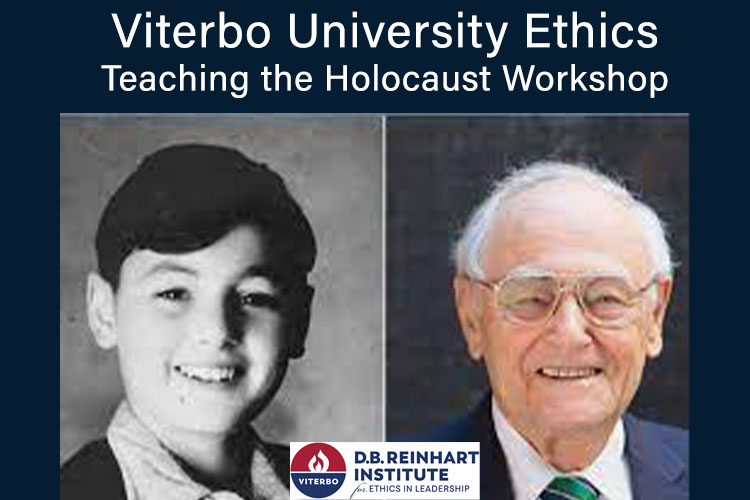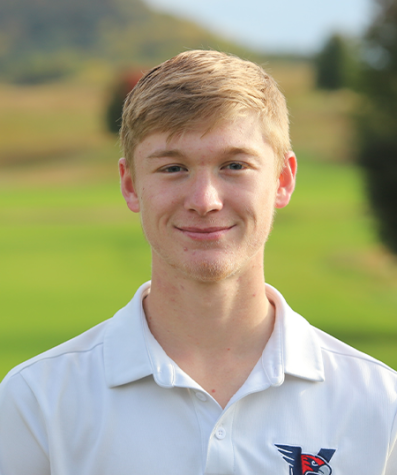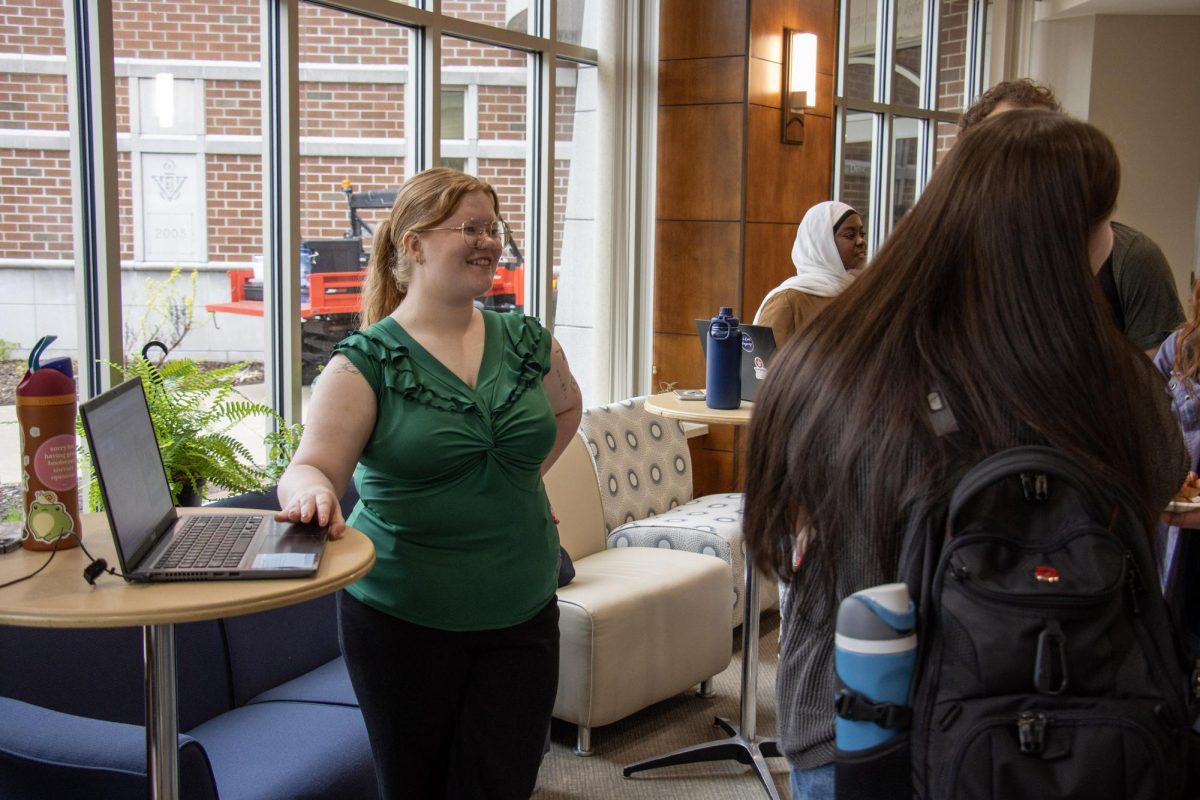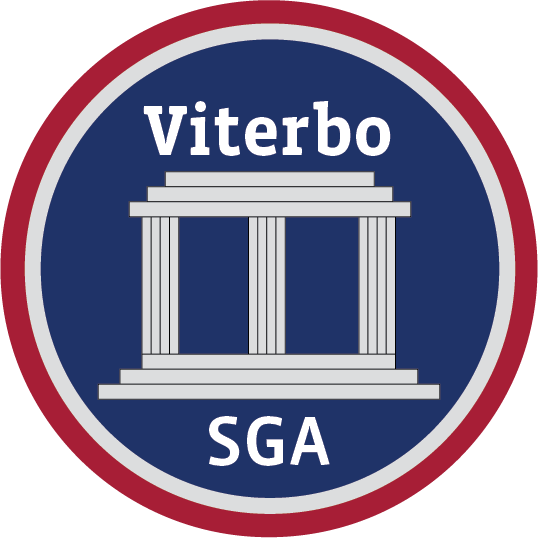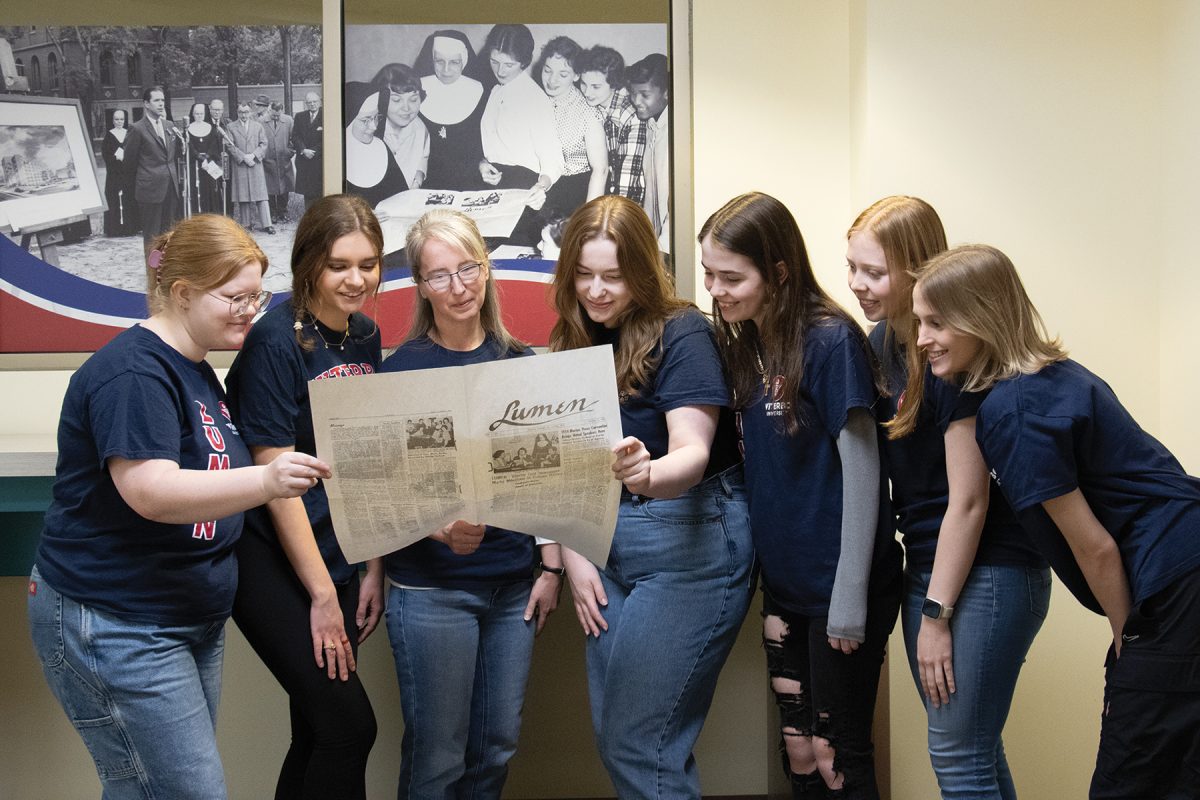Viterbo’s annual Teaching the Holocaust Workshop proves successful again, hosts near-capacity crowd
April 12, 2023
Hosted by the D.B Reinhart Institute for Ethics in Leadership, the 16th annual Teaching the Holocaust Workshop was held from March 23-24. Holocaust survivor Peter Feigl was the keynote speaker for the event and was able to tell his story to a crowd of over 850 attendees.
The Teaching the Holocaust Workshop has been a leading showcase of Holocaust educators from around the Viterbo community and the nation. Darryle Clott leads the workshop and has been involved in Holocaust education for more than 20 years. She, along with Rick Kyte and other leaders in the Holocaust education community, have brought numerous speakers to the university for over fifteen years.
The Lumen was fortunate enough to sit down with this year’s speaker, Peter Feigl, to discuss his life experiences and what can be learned from them. Feigl was born in Berlin, Germany in 1929, and was the only son of his secular Jewish parents, Ernst and Agnes. His mother and father knew of the impending persecution, so in 1937 the family moved to Vienna and had Peter baptized as a Catholic. Peter, being so young, did not understand, and he had no knowledge of the Jewish faith, yet he and his family were still under threat of persecution.
In 1938, Germany annexed Austria which forced Peter’s family to move again. They headed to Belgium, packing only one suitcase and taking none of their personal belongings. Many hoped that Belgium would remain neutral, but in 1940 Nazi Germany invaded, once again displacing the family.
Peter’s father was arrested in Belgium and warned the family to leave as quickly as they could. Peter and his mother walked on roads for ten days as planes shot machine guns down at them while they walked. They continued south of Paris where they were arrested by French government officials and detained in a camp named Gurs.
He recalled his time at Gurs having “Practically no food: a slice of bread and coffee for breakfast, lunchtime you got lukewarm soup and if you found some carrots in it you were lucky, and a slice of bread.” He recounts, “Even though there were no beds, we had bed bugs, and we had fleas, and body lice … it was a horrible place to be.”
The family was eventually released, and they soon went to live in a French town named Auch. It was at this time when he began writing in a diary. The Feigl’s lived there until the summer of 1942, when the French Vichy government began collaborating with Nazi Germany to “round up” Jews for extermination. Peter, who was away at a summer camp organized by American Quakers, was unaware that during this time his parents were arrested. They had been deported to Auschwitz where they were murdered within a month of arrival.
After his parents’ disappearance, he became more connected to the Quakers who helped transport him to the French village of Le Chambon sur Lignon. This village was predominantly Protestant and strictly devoted to their religion. To them, that meant helping those in need, which in this case was over 3,500 Jews, most of whom were children. Through the help of the people in this town and their connections to the Jewish underground, Peter was able to escape France into the hands of neutral Switzerland where his story of the war effectively ends.
Peter Feigl’s diary entries can be found in Alexandra Zapruder’s book, “Salvaged Pages: Young Writers Diaries of the Holocaust,” and Peter’s whole speech can be found at https://www.facebook.com/viterboethics.
It is in times of such social turmoil when we must remember the stories of the past in order to avoid repeating them. Feigl compared the historical context to bullying, stating, “The next time you see it happen, you have to intervene, you must stop it, otherwise you might very well be the one that is the next victim.” Feigl hopes that by sharing his story and applying its lessons to our own lives he may help create a more just society for all.
